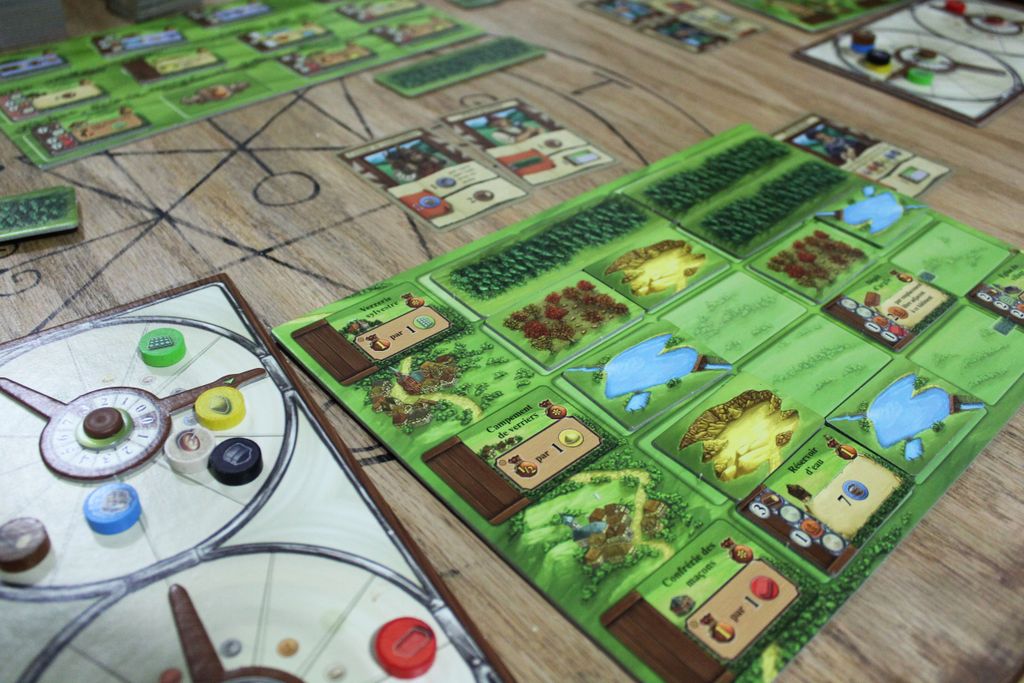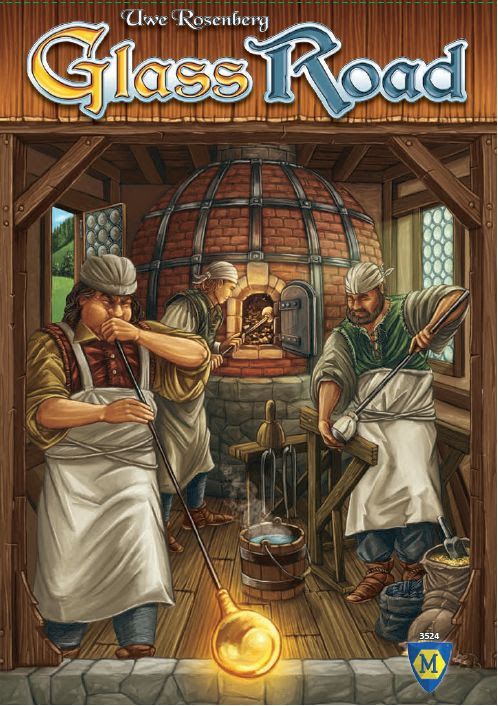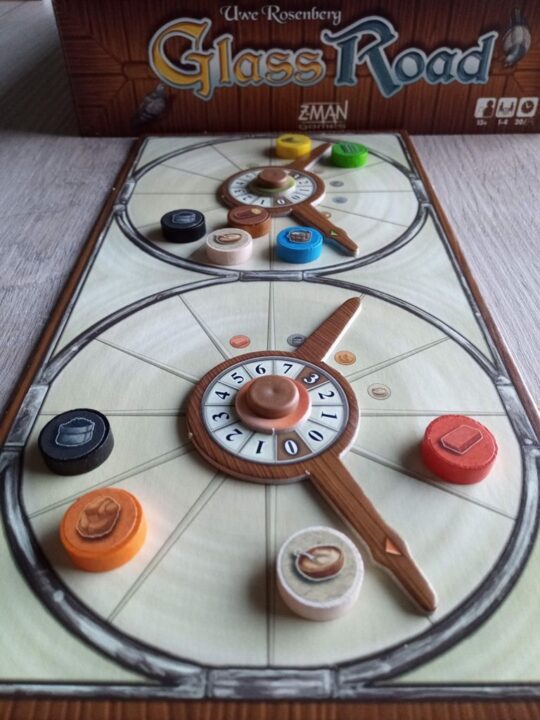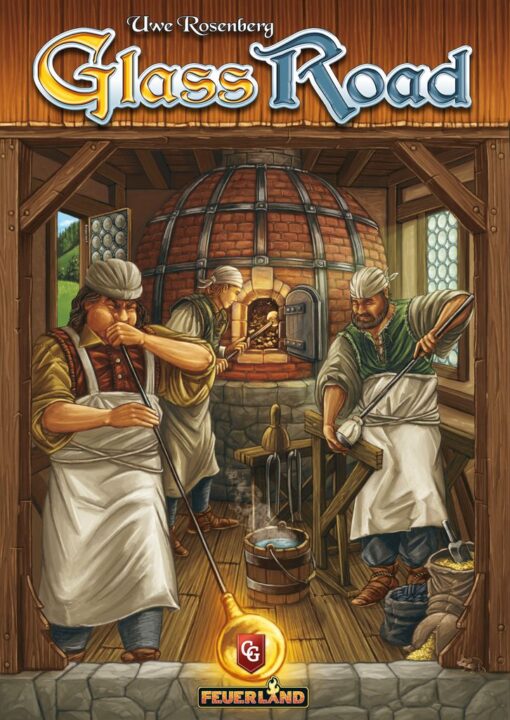Overview
Embarking on a journey through Uwe Rosenberg’s enchanting Black Forest, we find ourselves dissecting the myriad of intricate strategies within ‘Glass Road‘. This review delves into the heart of the game’s proficient resource management efficiency, robust player interaction dynamics, and the impeccably balanced gameplay pacing. Each component interweaves to craft an experience that’s as challenging as it is delightful, demanding a presence of mind and social finesse. So, gather your wits and prepare to forge paths through Glass Road, as we unravel the elements that make it a commendable addition to any board game collection.
How It Plays
Setting Up
Setting up Glass Road requires shuffling the building and round cards, placing resources, and preparing player boards. Each round begins with players secretly selecting five of their fifteen occupation cards.
Gameplay
During gameplay, players use cards to gather resources, convert glass and bricks, and construct a variety of buildings. Clever planning and predicting opponent moves are central to efficiently using rounds.
Winning the Game
The game ends after four rounds, with victory points calculated from buildings and produced glass and bricks. Resource management, smart interactions, and strategic choices blossom to fruition to harmoniously win.
Want to know more? Read our extensive strategy guide for Glass Road.
Mastering the Craft of Resource Management Efficiency
In the sphere of board games, effective resource management is the bedrock upon which empires are built—none more so than in the beloved Glass Road Review. Gracefully balancing this intricate mechanic, the game propels crisply from one decision to the next. Of primary importance, each choice carves out a future step, as foresight becomes key. Engage with these choices actively; an early slip in allocation can ripple through later turns, nudging you from potential victory.
Resource Allocation Strategies
When it comes to honing resource management skills, strategy is the armament that champions your game. Dextrously distributing your assets leads to construction prowess in Glass Road. Shrewdly prioritize resources to utilize buildings and landscapes that synergize with your current pool, swirling, amassing and mobilizing them as though they are cogs in a clockwork economy. Indeed, blind dedication towards single avenues frequently leads to obsolescence—in diversification lies the strength!
Engines of Progress
Adaptability aligns with efficiency in resource management. The most well-oiled machine is one that dynamically adjusts, wearing the sleeves of innovation to shift gears as circumstances morph. In writing a Glass Road Review, it’s praiseworthy how the game devises myriad ways to refine your material engines, molding your method of glassmaking and brick-laying. Evidently, mastering these systems creates irresistibly satisfying sessions, filling players with pride over their efficiency crafter’s legacy.
With the solid ground of resources systematically conquered, the fertile plain of Player Interaction Dynamics beckons, poised to intertwine with our game in the most human of ways.

Pivotal Player Interactions in Glass Road
In Glass Road, social interplay is not just a feature; it is the heart of exhilarating gameplay.
Subtle Alliances
Every move is critical as players continuously adapt to the choices of others, fostering an environment rich in subtle alliances and tactical blockades. Importantly, while negotiating such connections, players are lured into a dance of mutual advancement and individual supremacy.
Competition and Camaraderie
Regular fluctuation between competition and camaraderie ensures that ‘Glass Road Review’ sessions are filled with banter, celebration, and friendly rivalry. Acknowledging another’s clever maneuver becomes a lesson in both respect and strategy.
The dynamism in player interaction seamlessly leads us to another exciting facet of Glass Road: the intrigue of Gameplay Pacing.

The Rhythmic Tempo of Glass Road
In the Glass Road Review, the pacing constitutes a vital element, often becoming the crescendo of provisionally orchestrated gaming sessions.
Initial Momentum
From the starting whistle, Glass Road propels players into swift strategizing. With each round, initial tentativeness subsides, fueling a quicker exchange of resources and decisions.
Sprinting to Finale
As rounds advance, pacing accelerates. Time-sensitive objectives fuel intense confrontations and rapid strategic shifts, projecting gamers towards the exploitatively strategized endgame brimming with satisfaction.
Does Glass Road deserve a slot in your collection? Absolutely – it’s a must-try; just brace for the briskness!

Conclusion
In concluding this review, Glass Road stands out as an exceptional board game with its intricate resource management, robust player interactions, and brisk gameplay pacing. Whether you’re meticulously engineering your resource engine, artfully negotiating with your opponents, or racing against the churn of the production wheel, the experiences woven throughout each game ensure a variety of strategic pathways and replayability. For those who thrive on cerebral challenges and relish in the sparks of dynamic player engagement, Glass Road garners a resounding recommendation. A true masterpiece of design that unites the analytical with the social, making it a staple in any gamer’s collection.


